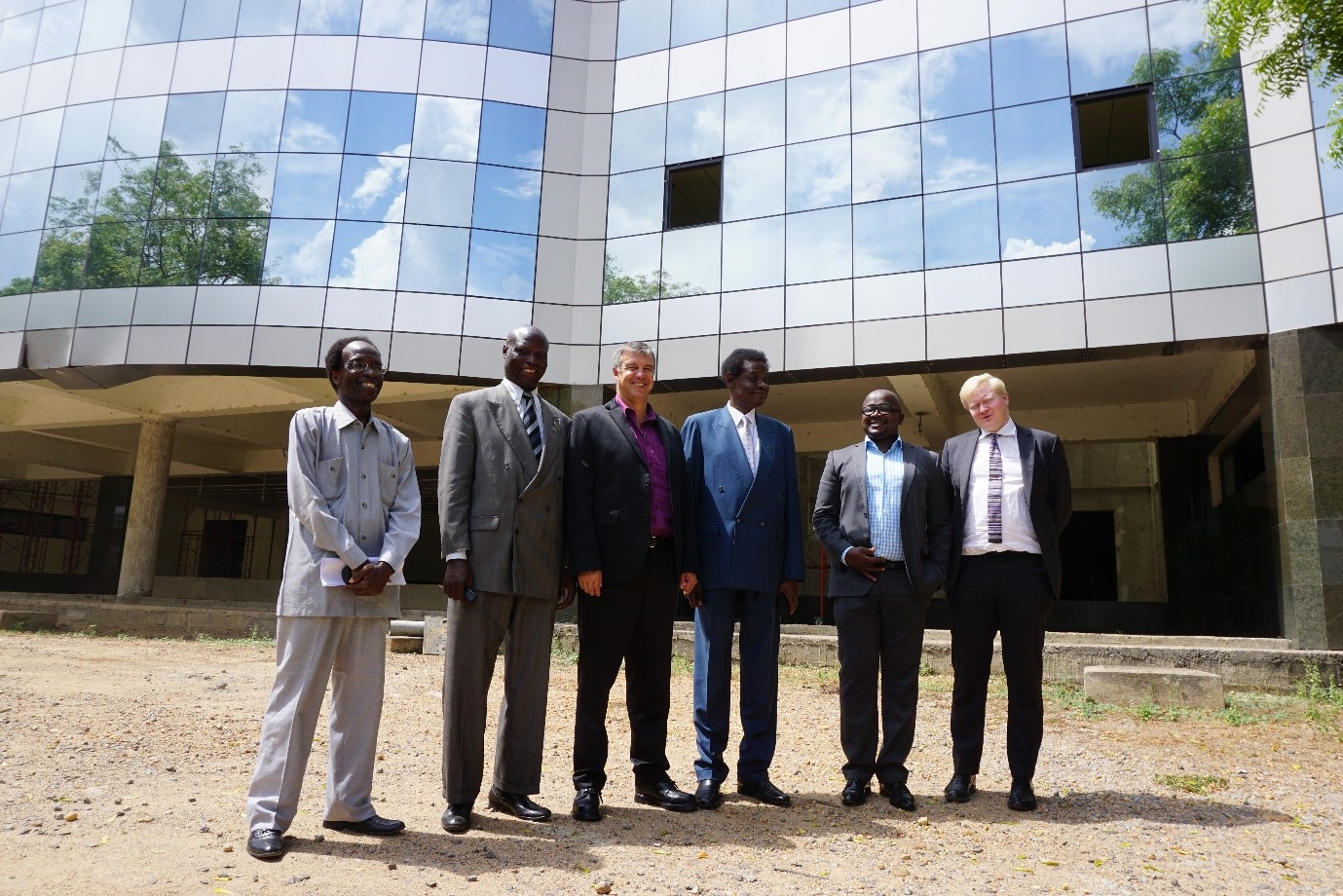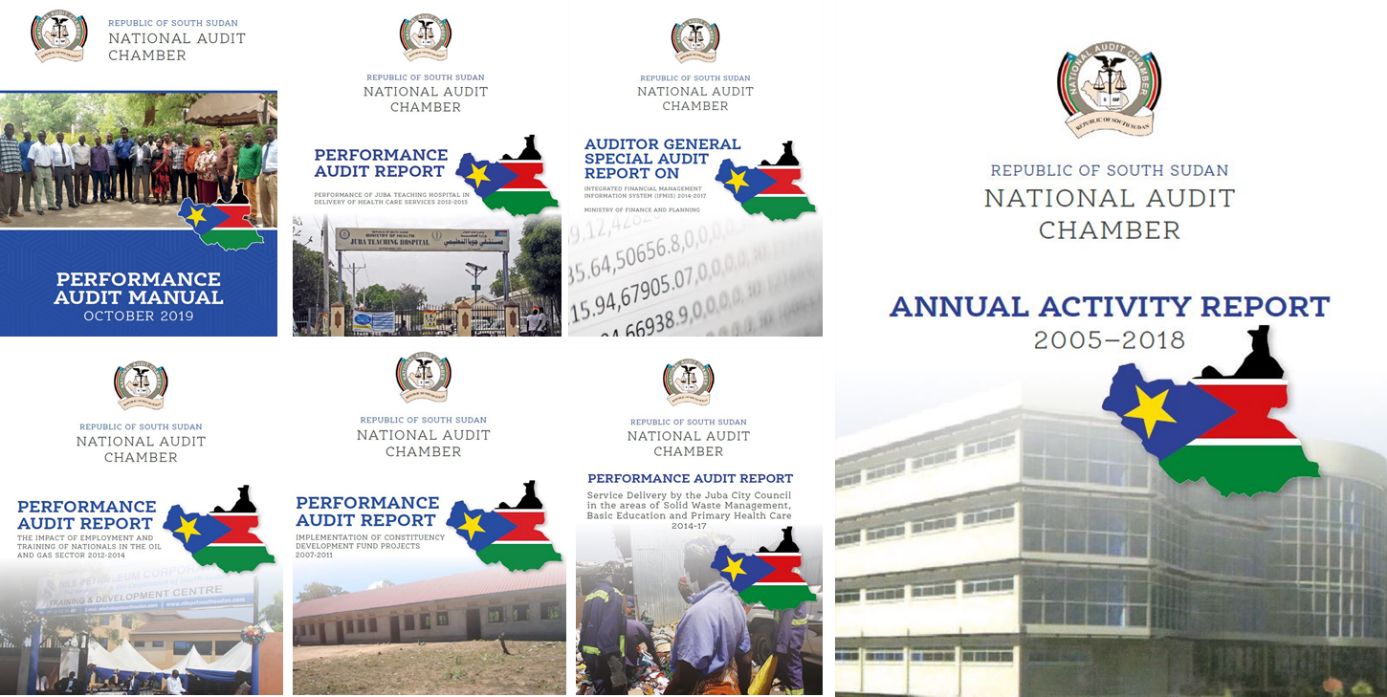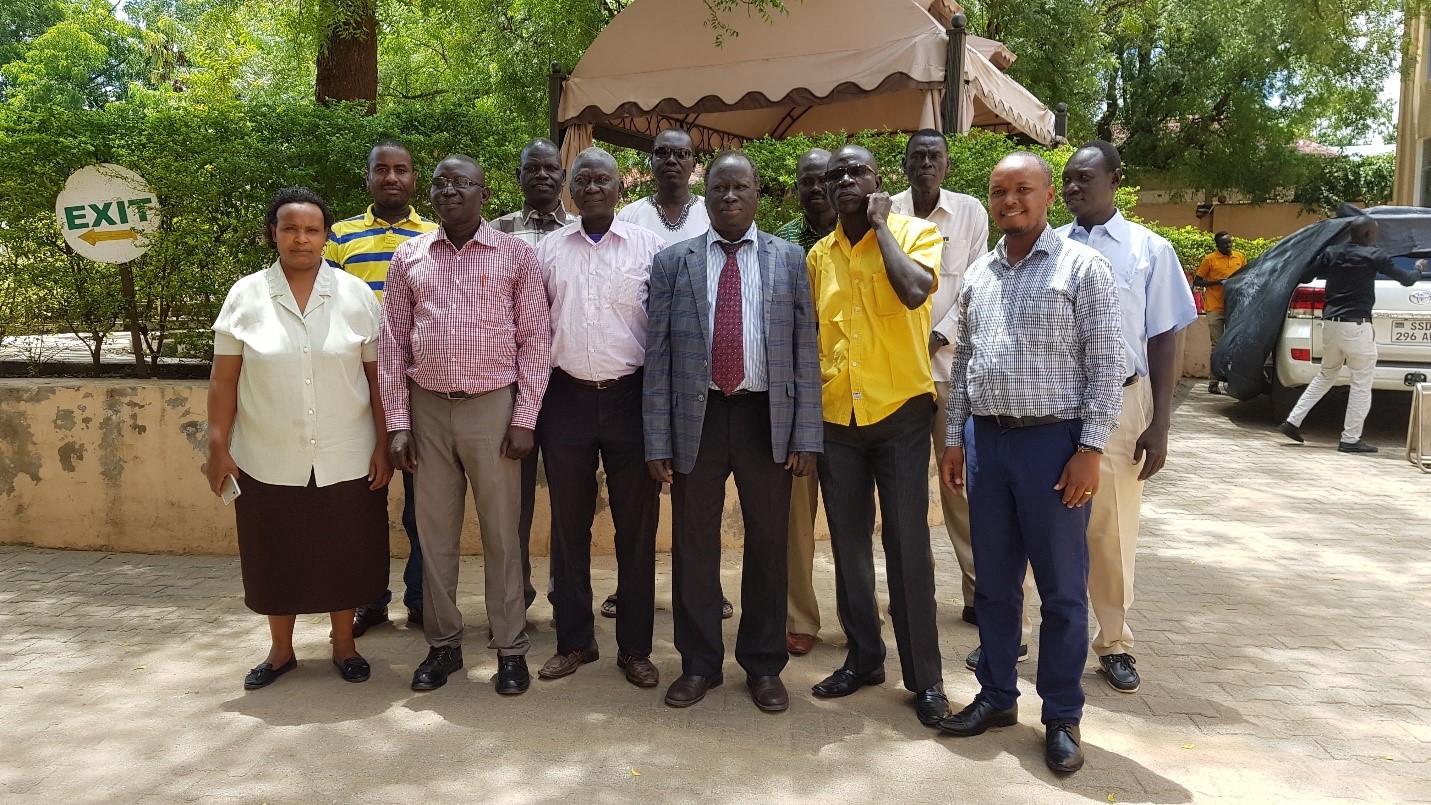About IDI
Our Cross-Cutting Priorities
Our Results
Meet the IDI Board
IDI's Board is composed of ten members from different supreme audit institutions. Get to know them better in our "Meet the Board" series.
IDI, AFROSAI-E and SAI South Sudan staff at the 2017 Annual meeting in Juba
IDI and AFROSAI-E jointly supported the National Audit Chamber (NAC), the SAI of South Sudan, in implementing key strategic priorities for 2017-2020, especially in the areas of auditing, stakeholder relations and planning, quality control and reporting. Funding was provided by the Norwegian embassy (MFA Norway) in Juba. SAI Kenya and Norway provided in-kind resource persons.
The overall objective of the projecthas been to “Maintain and strengthen key audit-related capacities in NAC, to prepare NAC to play a strong role in the reform efforts of the Government of South Sudan to improve and sustain Public Financial Management Administration and accounting systems.” There were six expected outcomes of the project:
Advice to execution, reporting and dissemination of audits has been a key part of the project. The project has also included support to introduction of new audit manuals, sharing of knowledge in the organization, participation in various AFROSAI-E events and trainings, stakeholder events, management development, and NAC’s own performance reporting.
NAC has been the main partner responsible for execution of activities. IDI has been primarily responsible for the funds and management of peer-support by the other partners. A steering committee led by the Auditor General has had the overall governance of the project.
See the Final project report chapter 3 for more details on project activities and progress.

Steering Committee for the Annual meeting in Juba December 2018, outside NAC new headquarter building
The Overall Project goal was to “Maintain and strengthen key audit-related capacities in NAC, to prepare NAC to play a strong role in the reform efforts of the Government of South Sudan as well as to improve and sustain Public Financial Management Administration and Accounting Systems.”
The status of overall indicators of goal achievement are shown in table 1. While the target of submission of audit reports to the Parliament and President has not been met, a major achievement is that four Performance audit reports and one Special audit report on IFMIS have been completed and printed. The actual reporting to the President and Parliament is planned by NAC when the Transitional National Legislative Assembly (TNLA) meets.

Front pages of selected audit reports completed in the project period
When it comes to the objective of maintaining the capacity in NAC, the available figures on turnover indicates that the target has not been met. The staff turnover has probably increased in the period among auditors and managers. Many staff have not received regular salaries in the period, and have not been regularly in the office. This means that NAC’s capacity has not been maintained in the period as intended. However, it should be pointed out that this has to a large extent been due to factors beyond the project control and is a government wide problem. Irregular payment of salaries and increasing inflation have prompted staff to move to better paid sectors.
|
Indicator |
Target |
Status by |
Comments |
|||
|
30. Sep 2017 |
30. Sep 2018 |
30. Sep 2019 |
30. Aug 2020 |
|||
|
50 % by the end of 2019 (of a total of 9/6)1 |
0 % |
0 % |
0 % |
0 % |
Four Performance audit reports and one Special audit report on IFMIS are printed, but not submitted as the TNLA** has not been met yet. |
|
Less than 10% annually |
0 % |
9 %* |
18%* |
NA |
Turnover figures not fully reliable, but clear indication of higher turnover than target in the period. Also many staff have not reported regularly although employed, due to lack of salaries. |
* The turnover figures are not measured in line with the definition of the indicator. While the indicator was supposed to measure turnover among auditors and managers, the figure reported here is turnover among all staff.
** The Transitional National Legislative Assembly
In spite of the lack of goal achievement as measured by the two major indicators, there has been many achievements that demonstrates results related to the objective of maintaining and strengthening key audit-related capacities in NAC. The following achievements should thus be highlighted:

Report writing workshop in Juba February 2019
As stated in the external evaluation, “even if many of the project supported audits and NAC systems are delayed, the results so far are good considering the challenging situation of the NAC.” The project is therefore assumed to have contributed to strengthening of key capacities in NAC during the period 2017-2020, although the audits are not yet reported and some auditors have left the office. Through the work of customizing audit manuals and trainings related to these, NAC has built a strong fundament for its future audits. The guidelines for auditing the IFMIS system has been developed, and will be useful for audits in this area in many years ahead. NAC has also been able to develop plans for HR and stakeholder engagement in line with regional best practice, which gives the relatively young institution a solid basis for further development of these capacities in the years to come.
Impact can be defined as an effect on the society and citizens. For SAIs, an impact can occur when audits are reported, public financial management and service delivery are improved changing the lives of citizens.
As the audits supported in the project have not yet been submitted to Parliament and President, the project have probably not yet had much impact. Some impact may have occurred through the auditors engagement with the auditees and submission of audit findings through management letters. If the reports are released in public, deliberated in Parliament and their findings follow-up, impact can be demonstrated. This is to be followed-up through the second phase of the project.
The project was the first Bilateral project led by IDI under the new bilateral policy, and many lessons learned have been identified through the project reports as well as the external evaluation. The main lessons learned are presented here.